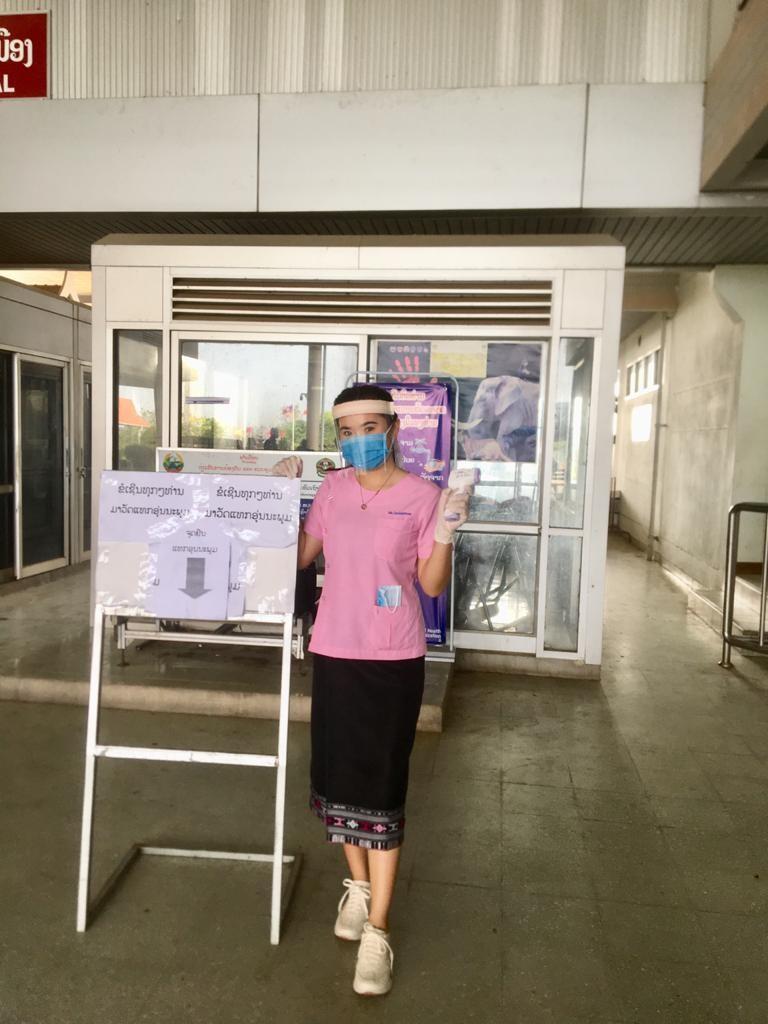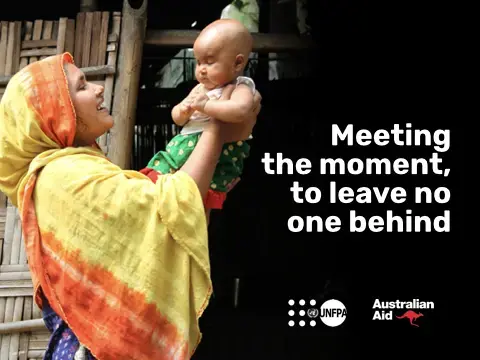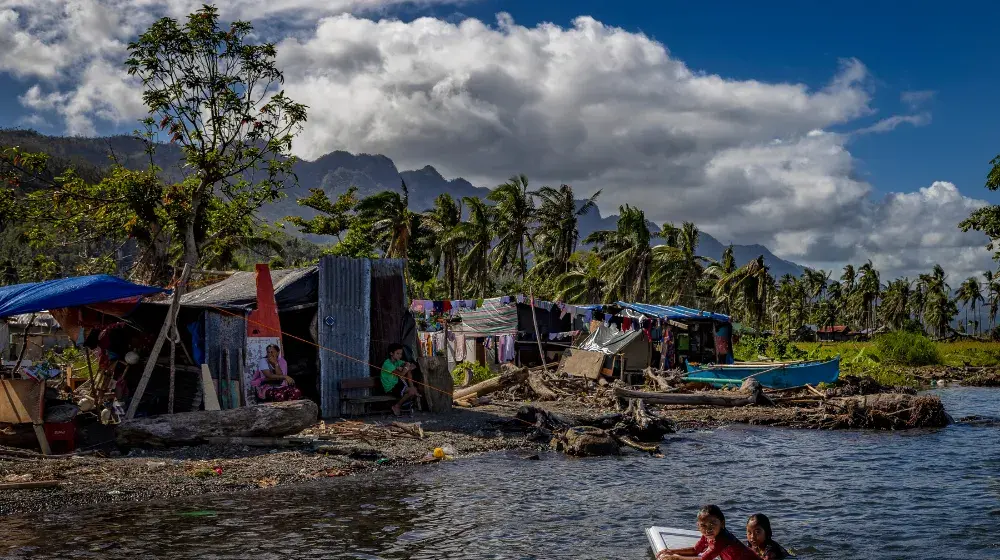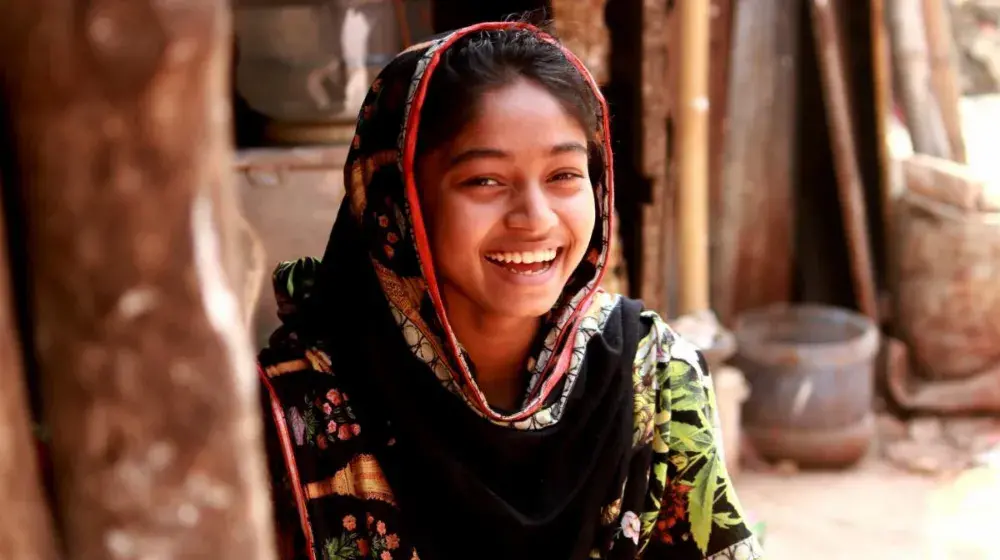Meet our four amazing midwives in Lao PDR, as they explain how COVID-19 has brought new challenges to their life-saving work
Lotchana Nonpasith’s story

midwife in Lao PDR for 16 years
I have been a midwife for almost 16 years now. In the past, I had a bad experience; I had a premature delivery and my child now has a disability. I do not want this to happen to other babies. This difficult situation gave me the courage to help other women during childbirth and teach midwifery.
When I saw the COVID-19 epidemic escalate, I knew I had to take action. Many migrant workers started travelling back home to Laos - there were thousands per day. I didn’t hesitate to join the frontline at the Lao PDR border and support my country.
Most of us are women and we have to stand by each other. In my unit, we were 30 women and only five men. At the border, we worked as a team even though we had never known each other before. We always helped each other and ate together. When we had food, we preferred to give it to the migrants first.
COVID-19 makes me sad because I hear people complaining about the economy getting worse. Many do not even have food to eat. I know it is not only in Laos but in other countries also. We need to go through this together. I encourage solidarity to reduce the negative impact and to combat stress and anxiety. We should care about each other, especially the most vulnerable.
As midwives, we collect the phone numbers of pregnant women in order to be prepared to help when they feel sick. I had a chance to talk with some pregnant women in my village. They said that they are scared. I tried to comfort them and show them how to avoid risks. This virus is more dangerous than the actual war because we cannot see our opponent. As health workers, we are afraid too. We are the frontline. This is our responsibility.
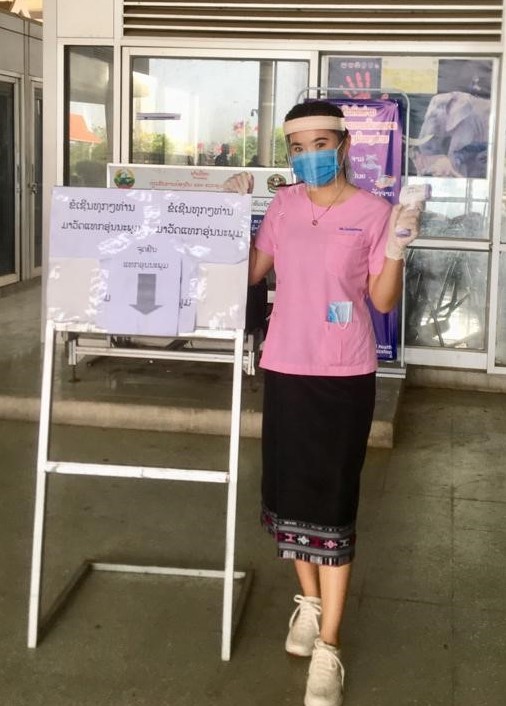
her dream of becoming a midwife
Samayphone Souliyavong’s story
I chose to study midwifery because I like helping women and their newborns. When COVID-19 arrived, we had, first of all, to take care of ourselves. We needed to make sure that we know how to protect ourselves from infection. Self-preparedness was crucial. Luckily, I did not test positive for COVID-19, but I still monitor my body temperature regularly.
During our work, health workers cooperate with us by providing training and practices on how to cope with COVID-19 according to international standards. As midwives, we do not only help or provide information for pregnant women, but we are also responsible for helping people who seek other services such as family planning.
I would like to tell the people of Lao PDR to be conscious and cautious. The best protection is to wash hands consistently. I advise people to exercise to stay healthy and stay away from people who have symptoms related to COVID-19. To be honest, at the moment, I am worried about people who still ignore how dangerous COVID-19 is. It represents a risk for everyone if they do not cooperate with health workers.

is helping women give birth safely
By becoming a midwife, I am fulfilling a dream. I am ready to improve midwifery in Lao PDR, in balancing the health system during pandemics and to maintain critical health services.
Siliphone Kharykham’s story
I am graduating as a midwife this year and what I most love about my job is to help women give birth safely. As soon as we realized COVID-19 came to Laos, I concentrated my efforts into finding reputable information that could help me and my patients.
To do our job, we follow instructions from the Department of Health Education and instructions from our college. We maintain a hotline which informs people who are in close contact with COVID-19. The epidemic is spreading all around the world and it is important to ignore rumours.
COVID-19 has made me realize how important my role is, as a midwife student, in providing critical services during epidemics. It is a big lesson for us to capitalize on in order to protect and control epidemics and also coordinate work and efforts to maintain, improve and make health services available to everyone in Laos.
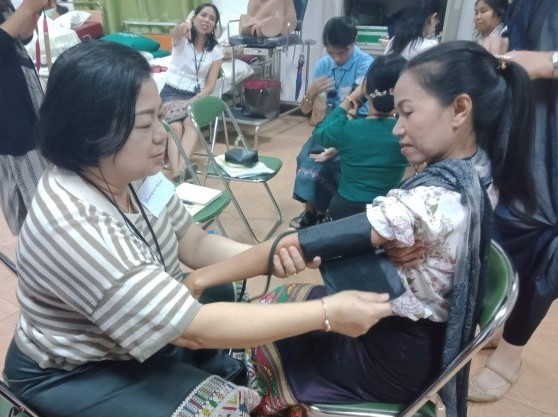
Phonmala Manomath’s story
I have been a midwife teacher for almost 30 years now, sharing knowledge with students and helping women and their babies. You can’t imagine how much I love my job. I enjoy the contact it gives me with children. I adore them! I don’t have kids myself but I feel great satisfaction for each safe delivery.
Before COVID-19 came, we already had TB and HIV and we have been adopting preventive measures for these viruses. Still, this epidemic brought a lot of change to our working conditions. Not only are we responsible for our own safety but also for the safety of pregnant women.
In my job, many workers are women. There is resilient solidarity between health workers. They help each other. If there are not enough health workers, we also send our students to assist at checkpoints.
As a midwife teacher, I am very fulfilled with a career that gave me the honour to help pregnant women and teach students. They call me a mother, can you imagine? We are like a big family.
All images credit: UNFPA Lao PDR

